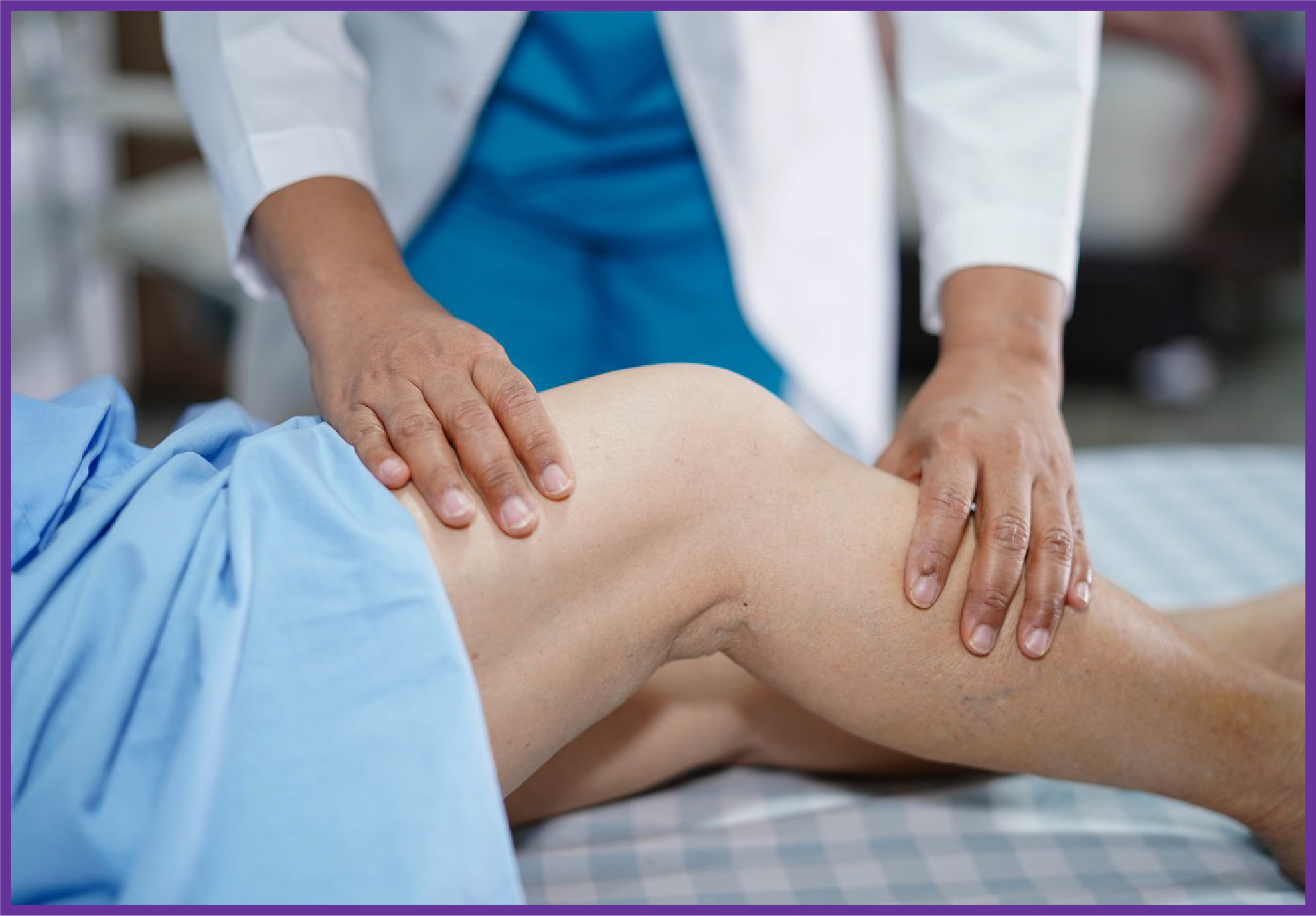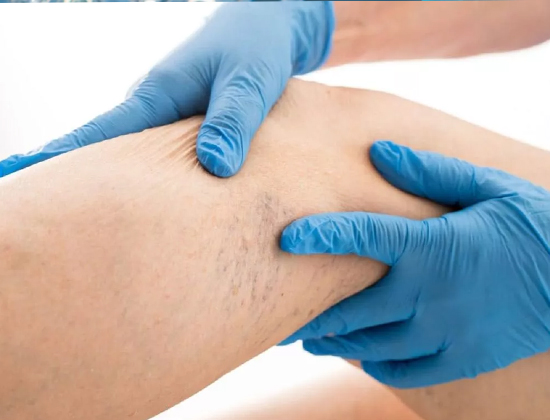Expert Care for Venous Ulcers – Restore Your Foot Health Today
Get effective treatment for venous ulcer with personalized care plans. Trust the Foot Wound Institute to help you heal faster and prevent future complications.


Comprehensive Guide to Venous Ulcers at the Foot Wound Institute
What Are Venous Leg Ulcers?
Venous leg ulcers are chronic wounds, slow-healing wounds that commonly occur on the lower legs. These ulcers develop due to chronic venous insufficiency, a condition where the veins struggle to circulate blood effectively back to the heart. They are often painful, can become infected, and significantly affect quality of life if not treated However properly. Learn more about our Venous Ulcer Treatment Services that focus on promoting healing and preventing complications Our specialized care approach includes advanced wound dressings, compression therapy, and regular monitoring by experienced wound care specialists Additionally, We tailor each treatment plan to meet the unique needs of every patient, helping restore comfort, reduce recurrence, and improve overall circulation and mobility.

Causes and Symptoms of Venous Ulcers
Causes of Venous Ulcer
Venous ulcer are caused by blood circulation in the veins, often linked to conditions such as chronic venous insufficiency and venous stasis ulcer. Risk factor include:
History of blood clots: Individuals with a past of blood clotting disorders are more likely to experience venous blockage, which can lead to poor circulation and chronic leg ulcers.
Obesity: Excess body weight puts continuous pressure on the leg veins, increasing the risk of venous insufficiency and delayed wound healing.
Prolonged standing or sitting: Staying in one position for long periods restricts healthy blood flow, contributing to venous stasis ulcers in the lower legs.
Family history of vein conditions: A genetic predisposition to vein disease can increase your chances of developing venous ulcers and related complications.
Symptoms to Watch For
Common symptoms of venous ulcers include:
Open sores on the legs, usually near the ankles: One of the most visible signs of a venous leg ulcer, these sores are typically slow to heal and may recur without treatment.
Swelling, aching, or heaviness in the legs: These symptoms suggest impaired blood return and are common in chronic venous insufficiency cases.
Skin discoloration around the affected area: Persistent venous issues can cause darkened or reddish skin around the ulcer site, indicating tissue damage.
Wound drainage or signs of infection: Yellowish or greenish discharge, foul odor, and increasing redness may indicate infected leg ulcers, requiring immediate care.
Expert Treatment for Venous Ulcers
Leg Ulcer Treatment Options
At the Foot Wound Institute, we specialize in advanced leg ulcer treatment to promote faster healing and reduce discomfort. Our treatment includes Compression Therapy for Ulcers, Wound Debridement, and Advanced Dressings to keep wounds clean and moist for optimal recovery.
- Compression therapy for ulcers: Essential for improving blood flow and reducing swelling.
- Wound debridement: Removing dead tissue to encourage healing.
- Advanced dressings: Keeping the wound clean and moist for optimal recovery.
Chronic Venous Insufficiency Treatment
Addressing the underlying chronic venous insufficiency is crucial to preventing recurring ulcers. Our specialists provide Minimally Invasive Vein Procedures, Medications for Vein Function, and Lifestyle Guidance to reduce pressure on leg veins.
Minimally invasive vein procedures: These modern techniques, such as laser therapy or radiofrequency ablation, help treat damaged leg veins without the need for traditional surgery. They improve blood flow and reduce the risk of venous ulcers by targeting problem areas directly.
Medications to improve vein function: Doctors may prescribe venous circulation medications that strengthen vein walls and reduce inflammation, supporting better blood return and preventing ulcer development.
Lifestyle guidance to reduce pressure on leg veins: Personalized advice, such as weight management, leg elevation, and compression therapy, is provided to lower the risk of chronic venous disease and help promote long-term leg health.
Why Choose the Foot Wound Institute?
Best Wound Care Specialists Near Me
Our team comprises some of the best wound care specialists in the Chicago area, dedicated to providing personalized and effective treatment plans. If you need assistance with a Diabetic Ulcer or Surgical Wounds, we offer specialized care tailored to your needs Whether you’re managing chronic conditions or recovering from surgery, our experts utilize advanced therapies, including negative pressure wound therapy, debridement, and bioengineered skin grafts. We focus on faster healing, infection control, and long-term results—right here in your local community.
Mobile Wound Care Services
For patients who face mobility challenges, our Mobile Wound Care Services bring expert care to your doorstep, ensuring you receive the necessary treatment without traveling. We provide comprehensive support for Traumatic Wounds and chronic wound conditions at home Our mobile team arrives fully equipped with advanced wound dressings, offering the same high-quality treatment you’d receive in a clinical wound care. Whether you’re recovering from surgery, managing diabetes-related wounds, or preventing infection, we make wound care convenient, compassionate, and consistent—right where you need it most.
Acceptance of Medicare and Other Insurance
We strive to make treatment accessible to all by accepting Medicare and other insurance plans, so you can focus on healing without financial stress.
Our team works directly with your insurance provider to streamline the approval process, clarify coverage options, and minimize out-of-pocket costs. Whether you’re managing a chronic wound or receiving post-surgical care, we ensure that financial concerns never stand in the way of the treatment you need. Let us handle the paperwork—your recovery is our top priority.
Start Your Wound Healing Journey with Trusted Experts Today
If you or a loved one is suffering from a venous ulcer, contact the Foot Wound Institute today. Let our expert team guide you through the journey to recovery with advanced care and compassion. Our specialists are also available for Medicare Wound Care Services.We’re committed to delivering timely diagnoses, personalized treatment plans, and long-term wound management strategies that improve quality of life. Whether you require in-home services or in-clinic visits, our compassionate team ensures every patient receives the care, comfort, and results they deserve—starting from the very first step.
Frequently Asked Questions About Wound Care Services at FWI
FAQS
Common signs of infection include increased redness, swelling, warmth around the wound, pus or foul-smelling discharge, persistent pain, and fever. If any of these symptoms occur, it is important to contact your wound care specialist immediately for timely intervention.
A properly healing surgical wound should show gradual reduction in swelling, less pain over time, and formation of healthy new tissue. The wound should remain clean, dry, and free of drainage or odor. Regular monitoring by a wound care expert ensures optimal healing.
To promote faster healing, follow your provider’s instructions carefully. This includes keeping the wound clean and dry, changing dressings as advised, maintaining good nutrition, avoiding smoking, and managing blood sugar levels if you are diabetic. Advanced therapies like negative pressure wound therapy may also be recommended.
Wound cleaning frequency depends on the type and depth of the wound, your overall health, and provider instructions. Typically, wounds are cleaned once daily or during dressing changes. It is critical not to over-clean, as this can disrupt the healing process.
In most cases, you can shower after a certain recovery period, but the wound must be protected from water using a waterproof cover. Avoid direct water pressure on the site, and do not soak in tubs or pools until your provider confirms it’s safe.
If bleeding occurs, apply gentle pressure with a clean, sterile cloth and elevate the affected area. Do not remove any dressings that have adhered to the wound. If bleeding is persistent or heavy, contact your wound care provider or seek emergency care immediately.
Get A Quote
Get A Treatment For All Your heal Wounds Needs.
Heal your wounds. Transform your scars in the strength, get the treatment you need to sooth your soul.
Need more help?
If you are struggling with a foot and wound problems, We are always here to help you.
Customer Service
(708)271-3537
Opening Hours
We provide our services 24/7

